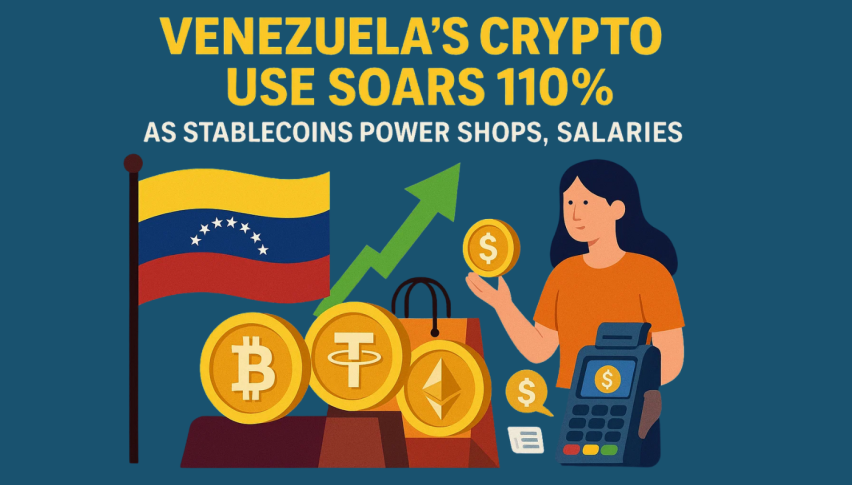Venezuela’s Crypto Use Soars 110% as Stablecoins Power Shops, Salaries
In Venezuela, cryptocurrency has gone from being a niche investment to a lifeline for millions. The country...

Quick overview
- In Venezuela, cryptocurrency has evolved from a niche investment to a crucial lifeline for millions facing hyperinflation and currency collapse.
- Venezuela ranked 13th in the Chainalysis Global Crypto Adoption Index in 2024, with a significant 110% year-over-year growth in crypto usage.
- Stablecoins, particularly Tether (USDT), have become the preferred medium of exchange, with businesses and employees increasingly using them for transactions and wages.
- Despite the government's mixed signals on cryptocurrency, Venezuelans have created a parallel financial system relying on digital assets for survival.
In Venezuela, cryptocurrency has gone from being a niche investment to a lifeline for millions. The country, which has been dealing with a decade of hyperinflation and a 70% collapse of its currency, has seen citizens turn to digital assets to protect their wealth and make daily transactions.
According to the Chainalysis Global Crypto Adoption Index, Venezuela ranked 13th worldwide in 2024, with a 110% year-over-year growth. For Venezuelans, it’s not about speculation, it’s about survival in an economy where wages are low, inflation is relentless and access to traditional banking is restricted.
Stablecoins, especially Tether (USDT), pegged to the US dollar, have become the preferred medium of exchange in a country where paper money loses value every day.
Stablecoins Dominate Daily Payments
Across Venezuela, crypto is going mainstream. From corner stores to big retailers, businesses accept stablecoins through popular platforms like Binance and Airtm.
Residents now use digital dollars to shop, save and even receive wages. Cointelegraph reports that more and more Venezuelan companies are paying salaries directly in USDT, bypassing the failing bolívar.
Key adoption trends:
- Small shops and big retailers accept crypto at checkout.
- Employees receive wages in stablecoins instead of fiat.
- Households save in digital assets to hedge inflation.
- Universities offer blockchain and crypto courses.
Crypto adoption soars in Venezuela amid bolívar collapse and 110% inflation surge. Citizens use $USDT for payments, salaries, and remittances, totaling $461M in 2023. Businesses and universities embrace digital assets as a store of value and financial lifeline.
— Market₿rief (@marketbriefx) August 27, 2025
Economist Aarón Olmos says crypto is no longer a luxury in Venezuela but a necessity for survival given inflation and the barriers to access bank accounts.
Government’s Mixed Signals on Crypto
While citizens are embracing digital assets, Venezuela’s government has been sending mixed signals. In 2018 they launched their own cryptocurrency, the Petro, but it failed to take off and was abandoned by 2023. Proposals to create a Bitcoin reserve appeared soon after but nothing happened.
This inconsistency has left Venezuelans to adopt decentralized alternatives on their own, making crypto a parallel financial system. Stablecoins have become the backbone of daily commerce, salaries and savings.As Venezuela’s crisis gets worse, its crypto adoption shows Venezuelans are tough and crypto is a global phenomenon. For the world, it’s a lesson on how blockchain goes from being an asset to a lifeline.
- Check out our free forex signals
- Follow the top economic events on FX Leaders economic calendar
- Trade better, discover more Forex Trading Strategies
- Open a FREE Trading Account


